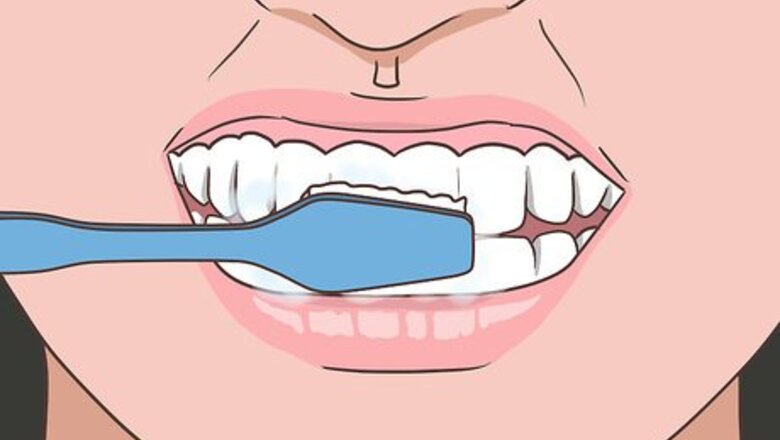
views
Keeping Your Teeth and Mouth Clean
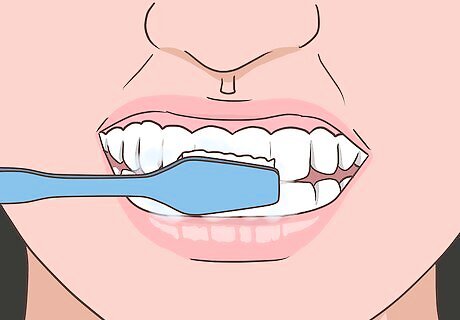
Brush your teeth. In most cases, the easiest way to get fresh breath is to brush your teeth. That will remove any bacteria that may be in your mouth, as well as any food that's trapped in your teeth. You should brush at least twice a day, but you may want to do it after each meal to keep your breath fresh. When you brush your teeth, do it for at least two minutes to ensure that your teeth and mouth are fully clean. To make it easier to brush on the go, you may want to keep a travel size toothbrush and tube of toothpaste in your purse, bag, or even the glove compartment in your car.
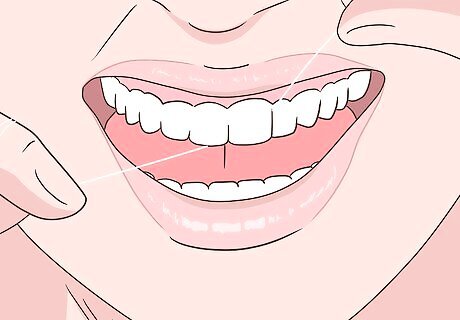
Floss your teeth. While brushing your teeth can help freshen your breath, it's a good idea to follow up with some floss. Food, bacteria, and plaque can become trapped between your teeth, and flossing removes them so your breath stays fresh. Floss at least twice a day. Keep a container of floss with your travel toothbrush and paste, so you can floss whenever you feel the need. For flossing on the go, it may be easier to keep some floss or dental picks in your bag. Floss picks feature a small plastic handle and a single strand of floss suspended across it. A dental pick is a small brush-like pick that can easily fit between your teeth for flossing. If you feel the need to floss and don't have any on hand, you can use a toothpick to remove food from between your teeth. You can also run it gently between your teeth to get rid of plaque that may be hanging around.
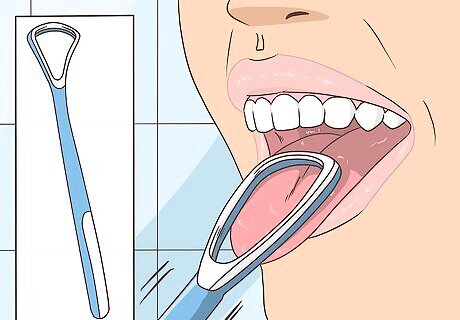
Scrape your tongue. Even if you brush and floss your teeth, foul-smelling bacteria can still linger on your tongue. You can use a tongue scraper to remove it or give your tongue a quick scrub with your toothbrush to make sure that your breath stays fresh. You can find tongue scrapers or cleaners in the same aisle at the drugstore that you find toothbrushes.
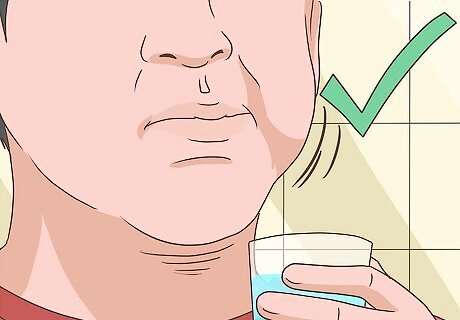
Rinse with mouthwash. When you're done brushing and flossing your teeth, it's a good idea to use mouthwash. It contains antiseptics that help remove bacteria that might cause bad breath and typically has a minty flavor or scent that it imparts to your breath. Swish a small amount of the wash around in your mouth for at least 30 seconds and spit it out in the sink. Consult the instructions on the mouthwash packaging to determine how much to use. Choose a mouthwash that's alcohol-free. Alcohol can dry out your mouth, which can lead to bad breath.
Using Quick Fixes After Eating
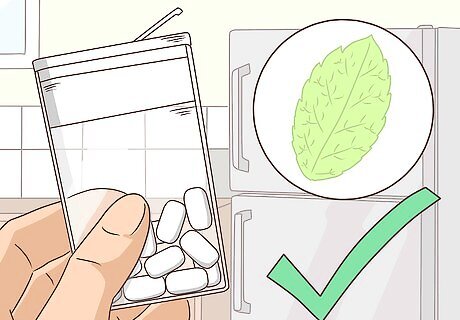
Eat a mint. If you need fresh breath in a hurry, a mint is the go-to solution. Any breath mint can temporarily freshen your breath after you've had a meal or drink. They come in a variety of flavors, such as peppermint, spearmint, and even cinnamon, so choose your favorite and chew or suck on it to freshen your breath. Opt for sugar-free mints, which are better for your teeth. Those that include Xylitol are the best option because it is a natural sweetener so it doesn't encourage the growth of mouth bacteria like sugar does. Keep in mind that breath mints are just a temporary fix. If you've having chronic bad breath, you may need to use more long term solutions.
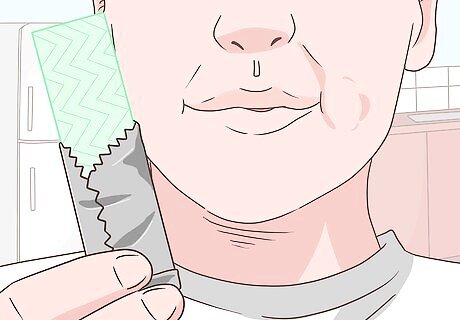
Chew sugar-free gum after you eat. Just like a breath mint, a piece of gum can freshen your breath quickly -- and temporarily. Gum in particular is effective because chewing it generates saliva that can wash away bacteria that might cause bad breath. Pop a piece of your favorite gum in your mouth whenever you're worried about your breath. Just as with the mints, choose sugar-free gum that contains Xylitol to protect your teeth.
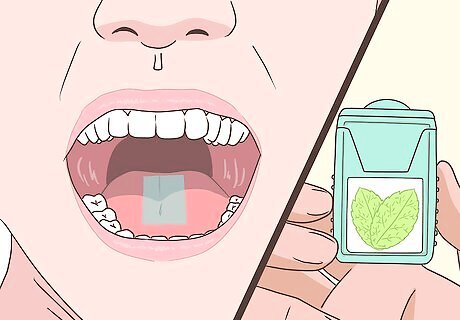
Use a breath strip. When you're on the go, you may not be able to rinse with mouthwash. A breath strip contains many of the same antiseptics that kill bacteria that mouthwash has, but it dissolves instantly on your tongue so you don't have to spit anything out. Just place the strip in your mouth and wait for to dissolve and freshen your breath. You can find breath strips in the same aisle as toothpaste and mouthwash at the drugstore. Breath strips usually come in small containers that are easy to keep in your bag or pocket so you always have one when you need it.
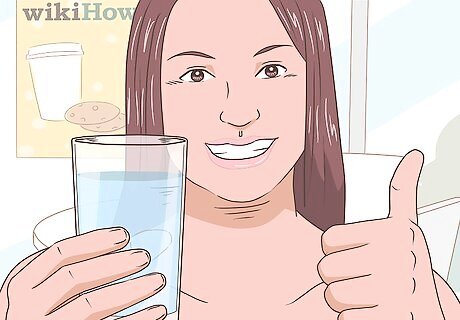
Drink plenty of water. Residue from the food and drinks that you've consumed can linger in your mouth, along with bacteria, and cause bad breath. Drinking water can help wash the residue and bacteria away so your breath stays fresh no matter what you're eating and drinking. Staying hydrated is also a good idea because having a dry mouth can lead to stale breath. Gargling with salt water daily can also help make your breath fresh. It helps remove bacteria and mucus from your mouth that may form into stones on the tonsils that often cause bad breath.
Avoiding Bad Breath Triggers
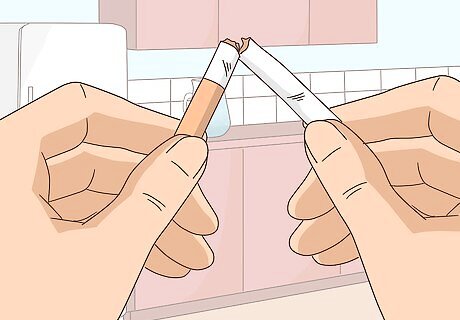
Give up tobacco. Whether you smoke cigarettes, cigars, or a pipe or chew tobacco, the habit can leave you with stale or bad breath. To freshen your breath -- and improve your overall health -- it's best to give up tobacco. While you're working to quit smoking or chewing, be sure to brush, floss, and rinse with mouthwash regularly to keep your breath fresh.
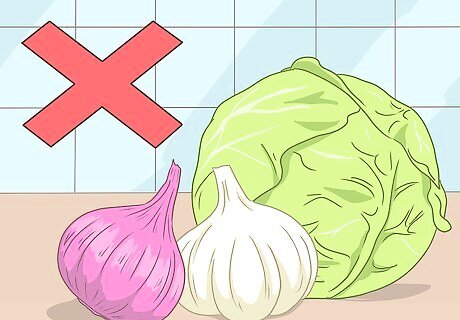
Stay away from pungent foods. Some foods are delicious but can leave you with bad breath. Avoid pungent foods, such as garlic, onions, cabbage, and certain spices, that can leave a strong odor behind when you're concerned about your breath. If you can't resist your favorite foods, brush, floss, and rinse with mouthwash after you eat a meal. If you're unable to brush your teeth after eating, use a mint or piece of gum to cover up the scent of pungent food on your breath. If you're out at restaurant and can't brush your teeth, rinse with mouthwash, and don't have any gum or mints, chew on the piece of parsley used to garnish your plate. Parsley is a natural deodorizer so it can help freshen your breath when you've eaten pungent foods.
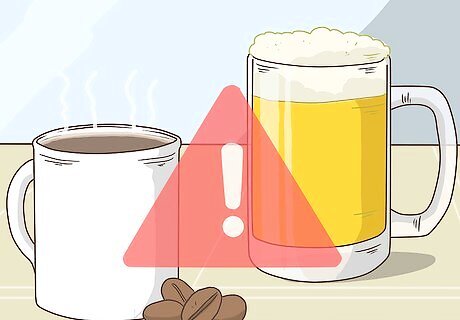
Limit your coffee and alcohol intake. Just like tobacco or pungent foods, coffee and alcohol can leave a strong scent behind in your mouth. When you want fresh breath, try to drink small quantities of these beverages. Brushing, flossing, and rinsing with mouthwash after you drink can help freshen your breath. A breath mint or piece of gum can mask bad breath from coffee or alcohol too. Following up each drink of coffee or alcohol with a glass water can also help keep your breath fresh.














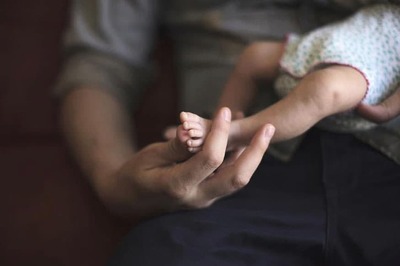



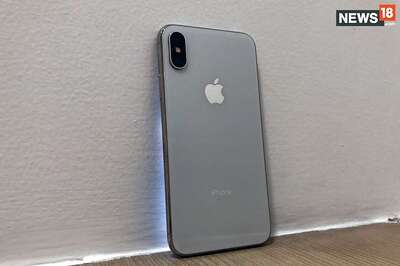

Comments
0 comment